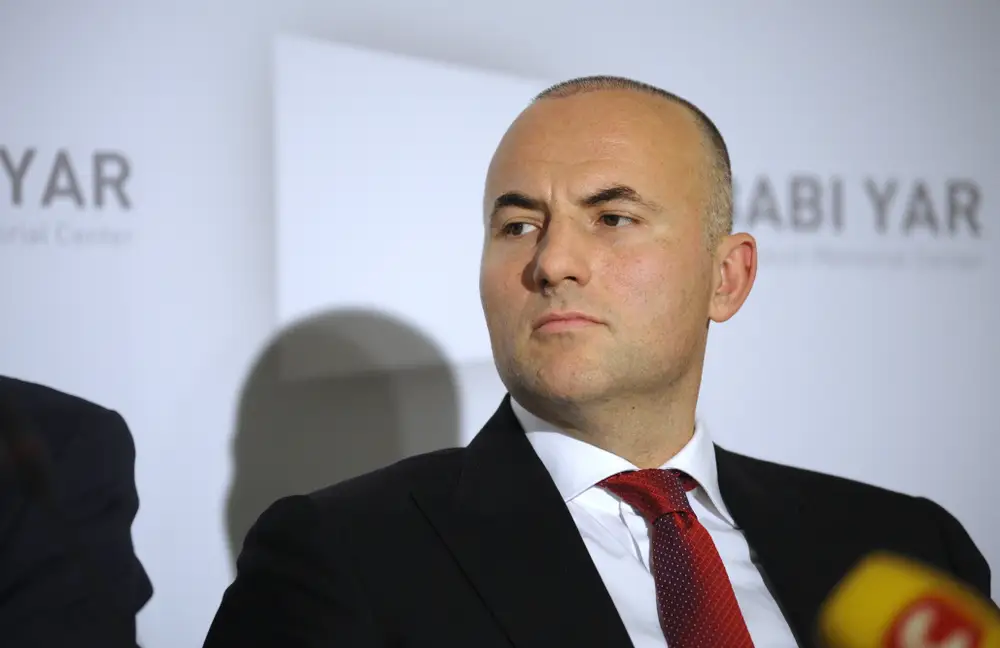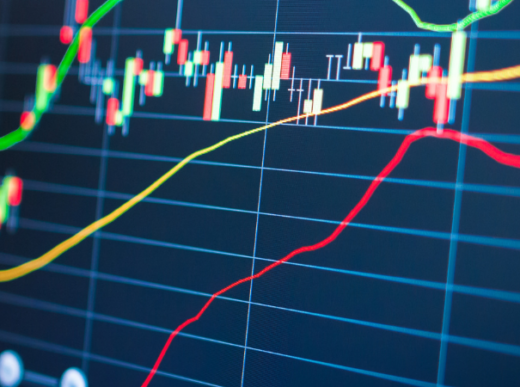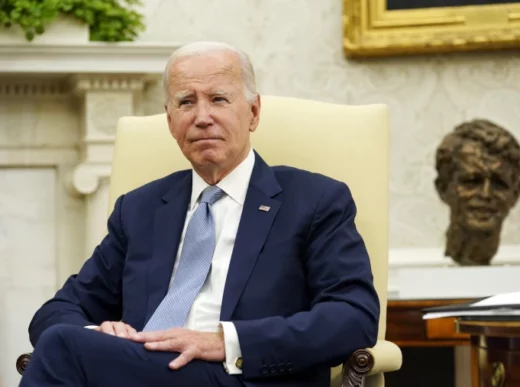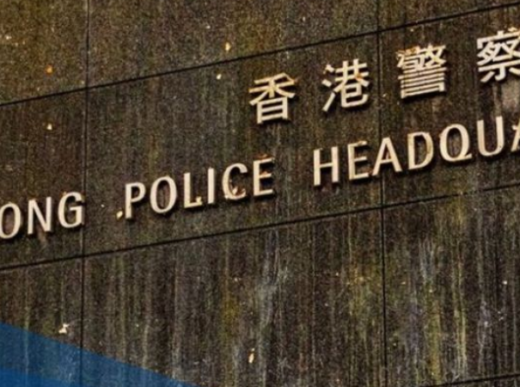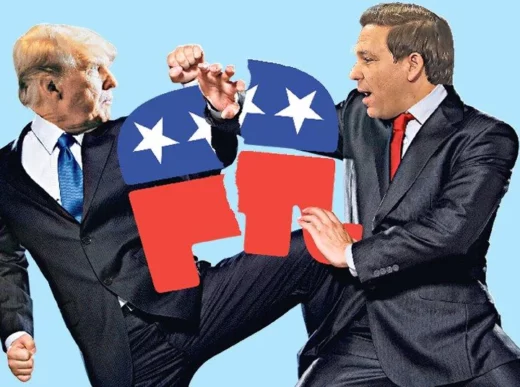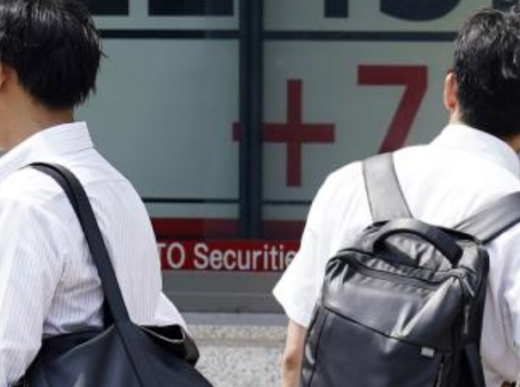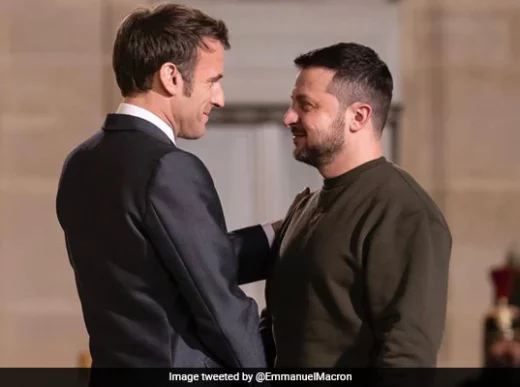Dive into the unfolding narrative surrounding Ukraine’s request for the United States to impose economic sanctions on Pavel Fuks, a Ukrainian oligarch entwined with Moscow. While the Ukrainian government is seeking punitive actions against Fuks, who has been associated with efforts to construct a Trump Tower in Moscow, the US response has so far been elusive. This article dissects the complexities of this situation, shedding light on the connections, allegations, and geopolitical implications at play.
Ukraine’s Call for Action: Seeking Sanctions
In July 2022, the Ukrainian government issued a plea to the US Embassy in Kyiv, urging the imposition of economic sanctions on Pavel Fuks. Fuks, a Ukrainian oligarch with deep ties to Moscow, was linked to “corrupt economic practices, transnational crime, and adverse foreign influence.” While Ukraine had already sanctioned him in 2021, it sought alignment from its crucial ally, the United States, in this endeavor.
Over a year has passed since the request was made, yet the US response remains absent from public view. Despite allegations connecting Fuks to former President Donald Trump and discredited attorney Rudy Giuliani, he continues to conduct business and hold assets within the United States. Reports indicate that he is now residing in the United Kingdom, where he enjoys permanent residency.
Insider obtained a copy of Ukraine’s Ministry of Foreign Affairs’ sanctions request and verified it through three officials, comprising two Americans and one Ukrainian. Despite these developments, Shannon Shevlin, a Justice Department spokesperson, confirmed that no US sanctions have been placed on Fuks, refraining from commenting on Ukraine’s request.
Fuks’ spokesperson, Kateryna Roshuk, refuted the allegations presented in Ukraine’s letter, denying any ties to organized crime or Russian state security services. Meanwhile, the Ukrainian Ministry of Foreign Affairs chose not to respond to queries regarding this matter.
Fuks’ Profile and Allegations
Fuks’ reported net worth of $270 million places him among Ukraine’s oligarchs without billions in fortune. Although he amassed his wealth through Moscow’s finance and real estate sectors, his relationship with the Kremlin appears strained. Russia imposed financial sanctions on Fuks, and a Moscow court charged him in absentia with embezzlement. His spokesperson, however, contested these claims and attributed the prosecution to pro-Ukraine sentiments.
Yet, critics argue that Fuks maintains connections to Russian organized crime and the Kremlin’s intelligence network. Allegations suggest that Fuks facilitated the painting of swastikas in Kharkiv, aiding the pretext for Russia’s 2022 invasion. Contacts between Fuks and Russian intelligence have been noted within the US intelligence community.
Potential Ramifications and Ties to Trump
The implications of Fuks’ alleged Kremlin ties hold significance, especially given his historical association with former President Donald Trump and his inner circle. Fuks claimed to have met with Donald Trump Jr. and Ivanka Trump in 2006 to discuss constructing a Trump-branded tower in Moscow. Felix Sater, a former Trump adviser, corroborated this account, adding that discussions spanned Moscow and New York. While the Moscow Trump Tower project fell through, Fuks’ interactions with Trump did not cease.
In 2017, Fuks journeyed to Washington for Trump’s inauguration, securing access by paying an associate $200,000. Additionally, in 2018, Fuks paid Rudy Giuliani’s company $300,000 for security consultation in Kharkiv, a city where he wielded substantial influence over the mayor. This engagement coincided with Giuliani’s involvement in Ukraine’s affairs and efforts to influence Ukrainian officials. Despite these circumstances, Giuliani escaped legal action for his actions in Ukraine.
The Sanctions Conundrum
Ukraine’s approach to sanctions, particularly its request regarding Fuks, raises questions about the US response. While specific reasons for the US non-action remain unclear, experts suggest that Fuks’ profile aligns with the criteria for sanctions. One former US official criticized this oversight, emphasizing Fuks’ multiple investigations and alleged affiliations with Russian intelligence.
The divergent approaches among NATO-Ukraine coalition members towards sanctions further complicate the situation. Although Fuks is among the many sanctioned by Ukraine yet free to engage in US business, the extent of global coordination on sanctions remains inadequate.
As Fuks reportedly resides in London, having secured a “golden visa,” concerns persist about Western governments’ inadequate coordination on personal sanctions. The discrepancy in imposing sanctions raises questions about global governance and the potential for sanctioned individuals to exploit regulatory gaps.
In Search of a Unified Front
The complexity surrounding Fuks’ case highlights the challenges in establishing a unified approach to sanctions across Western nations. The differing actions taken by the US, EU, and Ukraine underscore the need for coordinated efforts to curb the activities of individuals linked to controversial endeavors. As geopolitical dynamics evolve, the Fuks saga serves as a reminder of the intricacies and consequences of sanctions on both the international stage and the individuals involved.
